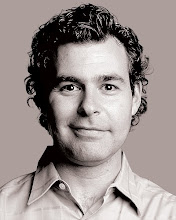So after the heated debate
that my Las Vegas Weekly column spurred last month over the recent book "Eating Las Vegas" and the disturbingly clubby relationships between the three critic authors and prominent Vegas restaurateurs, the topic just erupted in a massive way in Los Angeles, too.
The L.A. Times' food critic, S. Irene Virbila and some companions went to a new restaurant called Red Medicine in Beverly Hills the other night. For 16 years, she has worked as under-the-radar as possible. But someone on the staff at Red Medicine believed he spotted Virbila, who had made reservations under an assumed name. The managers spent a little time confirming it and made the party wait 40 minutes before bursting out, shooting her photo and informing her they would not be serving her at the restaurant.
The restaurant then put out a photo of Virbila on their website, too, and Gawker and Eater.Com also posted it. Her anonymity, such as it was, is gone. She spent 16 years avoiding photos of herself being published.
There is much to say, obviously. Managing partner Noah Ellis thinks he's a hero,
telling the L.A. Times that Irene's reviews in the past have been "unnecessarily cruel and irrational." She is said to have immense power over the fate of new restaurants, and she tends to eat at least three times at a place before making a decision.
This situation is a Rorschach test for those who line up on various sides of the debate. I, of course, believe that food critics ought to try their best to visit restaurants unannounced and incognito in order to have as accurate a representation of the food and experience as possible. Those have been the phrases I've been using for weeks on this matter, so imagine how gratifying it was to read Virbila in the L.A. Times story on her outing saying that it is preferable to not make a spectacle of yourself because if you do, "it's not an accurate representation of the restaurant."
If I'm deluded into believing that it's not that hard to be a quiet, effective food critic, then the other side -- including L.A. Weekly critic Jonathan Gold, who thinks there's "absolutely no difference in being recognized in restaurants" -- is at least as equally, but more insidiously, delusional. It's shocking and laughable
when Vegas Seven critic Max Jacobson said on KNPR that he doesn't evaluate service because service doesn't matter, showing how insufferably removed from the reality of ordinary restaurant patrons he is. (Jacobson also announced on that show that anyone who needs to try a restaurant more than once to evaluate it is a poseur, someone lacking in "instincts." Good grief.)
Those who believe that anonymity is a total myth, however, point to the fact that Virbila was noticed at Red Medicine and that chefs say they know who the important critics are and coddle them whether they know it or not. The entire charade is worthless and silly, they squawk.
Except there are 72-oz-porterhouse-wide holes in that logic in this situation:
* After 16 years in Los Angeles, it took Red Medicine a great deal of deliberation before they could determine if, in fact, this was the person. Thus, they don't ALL have her photo up in their kitchens or her face memorized. These were veteran restaurant people and they weren't entirely sure.
* The purpose of this outing was to forewarn other restaurant owners and make Virbila's work harder. That implies that she had managed to be successful at her undercover work at least some -- a lot? -- of the time.
* The logical conclusion of this idea that critics ought to give up being anonymous and allow restaurants to shower them with extra goodies and attention is that criticism by the very people who have real culinary expertise -- such as Mancini, Curtas and Jacobson -- becomes disregarded by the public. The reader knows these guys are coddled and that they won't be, so the reader is more likely to discount rave reviews as the result of some nefarious, unfair meddling. That leaves, essentially, the Yelp! universe. I don't mind that -- I look to Yelp! often -- but the odds are the Yelpers don't have the history or expertise that long-term professional critics have. The outcome is the triumph, essentially, of less informed opinions.
Of course, there's a space between the true-anonymity and the critic-as-rock-star poles. In there, food critics simply try to keep a low profile, to not draw attention to themselves, do their best and at least maintain the implicit contract with the reader that they're working on their behalf. They don't make chums with chefs and owners any more than I'm chums with top casino executives I cover or Jon Ralston is chums with politicians or Mike Weatherford is chums with actors and directors. You can be friendly and civil without it becoming a friendship, you can maintain a detachment that allows you to assess situations and information through a prism that enriches the public that you serve.
There is a reason why this topic -- and now the Red Medicine event -- is so fascinating. There is also no other discipline where an artist or purveyor of creative goods is permitted to select their critic. No author or film studio can stop a critic from consuming the material and rendering a response. Only in food criticism is it even possible to alter the product for a person's specific tastes or actually exclude them altogether from being able to evaluate it.
That's why the Virbila situation is so weird. No matter where you stand, it ought to be instinctively offensive that Ellis would actively work to out this woman and refuse to serve her. That reflects, to me, two things:
* The restaurant must truly suck.
* The owner is incredibly bitter.








6 comments:
Anonymity is absolutely a valuable way to assess a restaurant. But it isn't necessarily the only valid way.
It is interesting that Max made that comment to you about service. He actually praised the service at La Cave in one of his most recent foodwinekitchen.com blogs. Which I thought odd.
When I am in a restaurant and known, I typically disregard the fawning service. However, often enough even when I'm known the service is awful. So that REALLY tells you something. In general, of course service is an essential part of resturant experience, but it's also the most unpredictable. It's only when you can tell there is a serious service culture in a resturant that noting it matters. Otherwise it's largely a roll of the dice.
The crux of the Susan Irene Virbila debate is that no one critic should wield so much power. But then, the power is given to her, by editors and readers.
Steve. Service is very important. It is largely what people pay for. They want to feel special, and I'm sure diffident service spoils the restaurant experience for most of restaurant goers. It's just not an issue for me. I only dine out for the food, but my comments were not especially well thought out. Max
Maybe the restaurant knew it was the critic because she was the only one who could stand to go to their place three times!
"...Yelpers don't have the history or expertise that long-term professional critics have. The outcome is the triumph, essentially, of less informed opinions."
I totally disagree! Why does one have to have a pseudo-level of snobbery to know if a restaurant's food tastes bad or if the service is lousy? Are you implying that the paying customers can't make a decision without you so-called experts telling them what to think? I love the Yelpers - live, raw, un-censored, HONEST reviews even with the misspellings & the grammatical mistakes! THESE PEOPLE SAVE ME TIME, MONEY & HASSLE! I tend to disregard the highest & lowest reviews because sometimes people are too picky about something that is basically a non-issue. But if the common denominator is basically the same across the board, then I'll take it as a "fact". In a perfect world, I would like to have the $$$ to decide for myself. But this way saves me time. It's really all about consistency anyway. You critics take yourselves WAY TOO SERIOUSLY, but perhaps your jobs will be obsolete too,some day in favor of the Yelpers or sites like them.
Anon --
There has to be a space between these poles as well. Discriminating criticism from people who really understand the craft and complexity of any art form -- movies, art, dance, shows, food -- can be informative and helpful. So, too, can the mass reaction of many people. The trouble is -- and this has been studied -- Yelpers tend to veer towards the positive, with some extreme negative ratings tossed in when people are motivated enough. There are many chain restaurants on there that get better ratings than well-regarded fine dining establishments. Anyone who thinks the steak is equally good at Outback as at Cut is not someone I want assisting me in deciding how to choose a place for a nice meal out.
The pro critic should be able to approach certain art forms from criteria that are important but perhaps less obvious to others who don't study or have the experience or expertise.
That there is more and more opinion out there is great, but it also makes it harder and harder to know who to trust. That's true of professional food critics and it's true of amateurs flooding websites like Yelp. I believe that it is good for the public to have the considered opinions of people who have a wide range of experience and knowledge, folks who have really studied what they're evaluating.
Then again, as your note clearly reflected, this is an America in which people who have studied, people who have educations, people who have developed expertise are looked on with suspicion. How dare someone get educated on something and then tout that knowledge as an asset? It is far more trendy to be mediocre, to be proud of being ignorant or misinformed. This is how our country pursues "American exceptionalism," by mocking and ostracizing those who have actually achieved some exceptional understanding of something.
I've loved the discussion on this. When I saw the LA Times blow up I immediately thought of your recent 'discussion' over Twitter on the matter.
As a reader, I don't know where I stand on it. I think I lean toward preferring anon. reviews, as I do believe that notoriety and special attention to critics are likely not standard procedure of the restaurant. It's not that I wouldn't read or use reviews by those that are not anonymous, but I think it needs to be disclosed early and often when this is the case, and to a degree the reviewer needs to be aware of it, and their thoughts if something seems out of ordinary or anything else.
I did not know the LA Times reviewer visited three times before writing up her reviews, to me that's fairly impressive and something I would appreciate as a reader. Perhaps her reviews were too tough or perhaps they were right on the mark. Impossible to tell whether people don't return or come due to reviews, or due to food or service being sub par.
Post a Comment